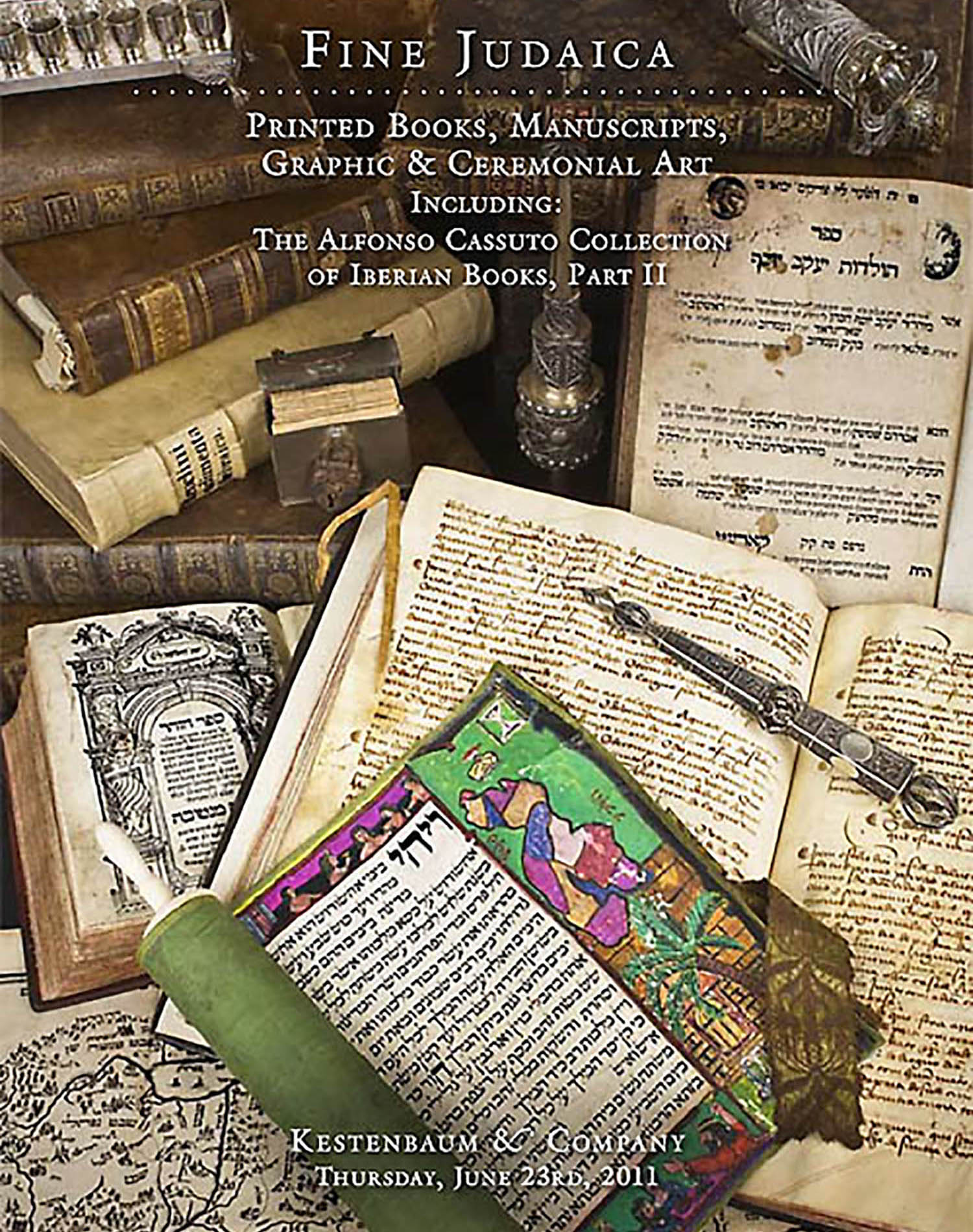(ANTISEMITICA)

AUCTION 51 |
Thursday, June 23rd,
2011 at 1:00
Fine Judaica: Printed Books, Manuscripts Graphic & Ceremonial Art Including: The Alfonso Cassuto Collection of Iberian Books, Part II
Lot 104
(ANTISEMITICA)
Frankfurt a/Main: 1544
Est: $1,000 - $1,500
An apostate and anti-Jewish writer (his name is a corruption of the family surname Margolis), Margaritha was born c.1490 and converted to Catholicism in 1522. This libellous tract in which the author ridicules Jewish religious practice and beliefs had a great influence upon Martin Luther who quoted it often in his own writings. Margaritha accuses Jews of lacking charity and piety, of harboring sentiments hostile to Christians, and finally, of treason. What gave Margaritha especial “credibility” was the fact that he was no ordinary Jew but the son of Samuel Margolis, Chief Rabbi of the City of Regensburg, the Empire's most distinguished Jewish community. Elisheva Carlebach has dealt extensively with this work which she describes as a “sixteenth-century bestseller.” See Carlebach, Divided Souls (2001) pp. 55-6, 63-64, 179-182; see also EJ, Vol. XI, cols. 958-9.
The Epistle of Rabbi Samuel is a fabrication with the same degree of “scientific” validity as the later infamous Protocol of the Elders of the Zion. Designed to convert Jews to Christianity, the epistle was supposedly composed in Arabic by a Moroccan Jew ("Samuel Marochitanus") at the beginning of the 11th-century and later went through several European translations. See Studies in Bibliography and Booklore, Vol. V (1961) p. 89, no. 67
